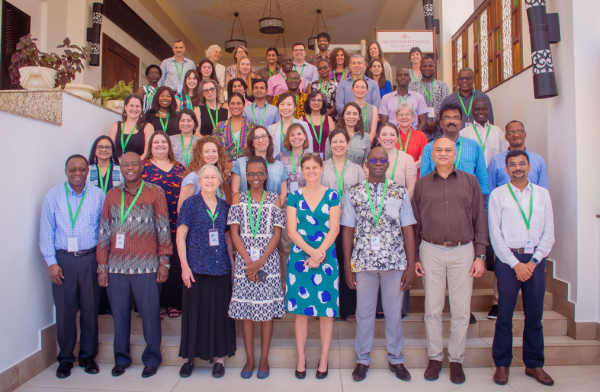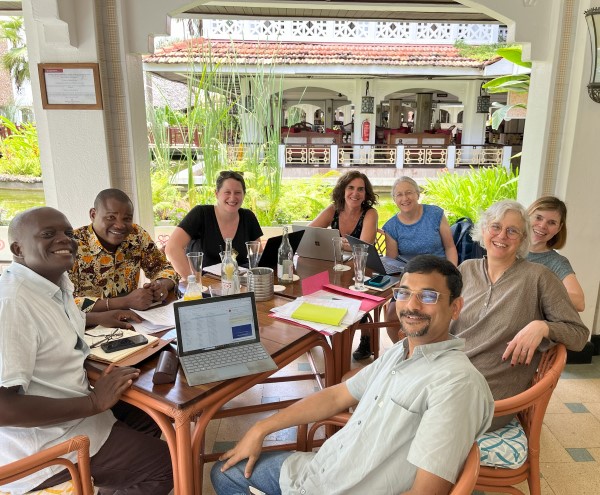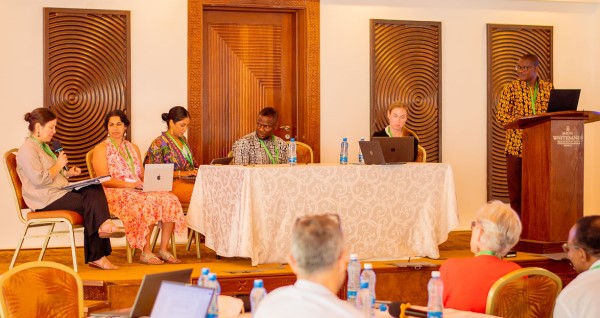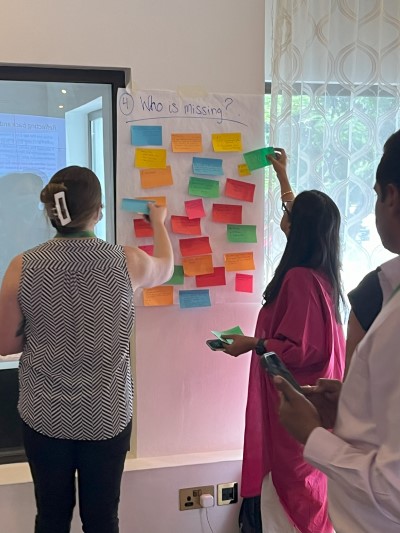Assessing approaches to demand-side FP measurement with a reproductive justice and rights frameworkMombasa, Kenya 5-7 March 2024
The IUSSP Panel on Rethinking Family Planning Measurement with a Reproductive Justice and Rights Lens, in collaboration with Population Council-Kenya, organized an Expert Meeting on Assessing Approaches to Demand-side Family Planning Measurement with a Reproductive Justice and Rights Framework in Mombasa, Kenya 5-7 March 2024.
The objectives of the meeting were to: a) Convene and examine measures and measurement approaches with a reproductive rights and justice lens; b) Identify measures that can be used to assess family planning progress, opportunities, and gaps in a way that is reflective of individuals’ self-identified needs and goals (i.e., person-centered); and c) Discuss ways forward to advance global family planning measurement in preparation for a post-2030 measurement agenda.

The meeting then considered the pros and cons of current measures such as “intention to use contraception” and participants discussed the general dissatisfaction with “unmet need” as a global measure of family planning need. The meeting followed with presentations of research using new approaches to measure family planning needs and preferences, including method preferences and novel data and indicators to measure contraceptive and reproductive autonomy, as well as a discussion of their relevance to the post-2030 measurement agenda and the Sustainable Development Goals (SDGs).
The meeting included afternoon breakout sessions to build on the morning‘s presentations with discussion and reflections from all participants to generate ideas and recommendations on person-centered focused data sources, insights and measures and ways to move forward. The discussion greatly benefited from the participation of experts from diverse regions – Africa, Asia and Latin America– who brought to the discussion the importance of context, community and the role governments will play in the adoption of any new measures at the country level for monitoring contraceptive use.
It was a lively meeting with much discussion and input from all participants. A report will be forthcoming, and the panel will be working towards the development of recommendations over the coming year.
The Panel plans to hold meetings at upcoming regional population conferences to present the lessons learned from this meeting and continue discussions with those working on family planning monitoring and measurement around the globe. The first presentation will take place on Wednesday 17 April from 3-6pm at the PAA Annual Meeting in Columbus, Ohio in room Franklin D.
This meeting was organized in collaboration with Population Council -Kenya and with the support of a grant from the Bill and Melinda Gates Foundation, and with additional support from USAID through the Carolina Population Center at the University of North Carolina at Chapel Hill. We thank these donors and all the participants for their enthusiastic participation and thoughtful contributions to this meeting and the IUSSP Panel Steering Committee members for their thoughtful selection of presentations and participants and the overall organization of the meeting agenda.




|
